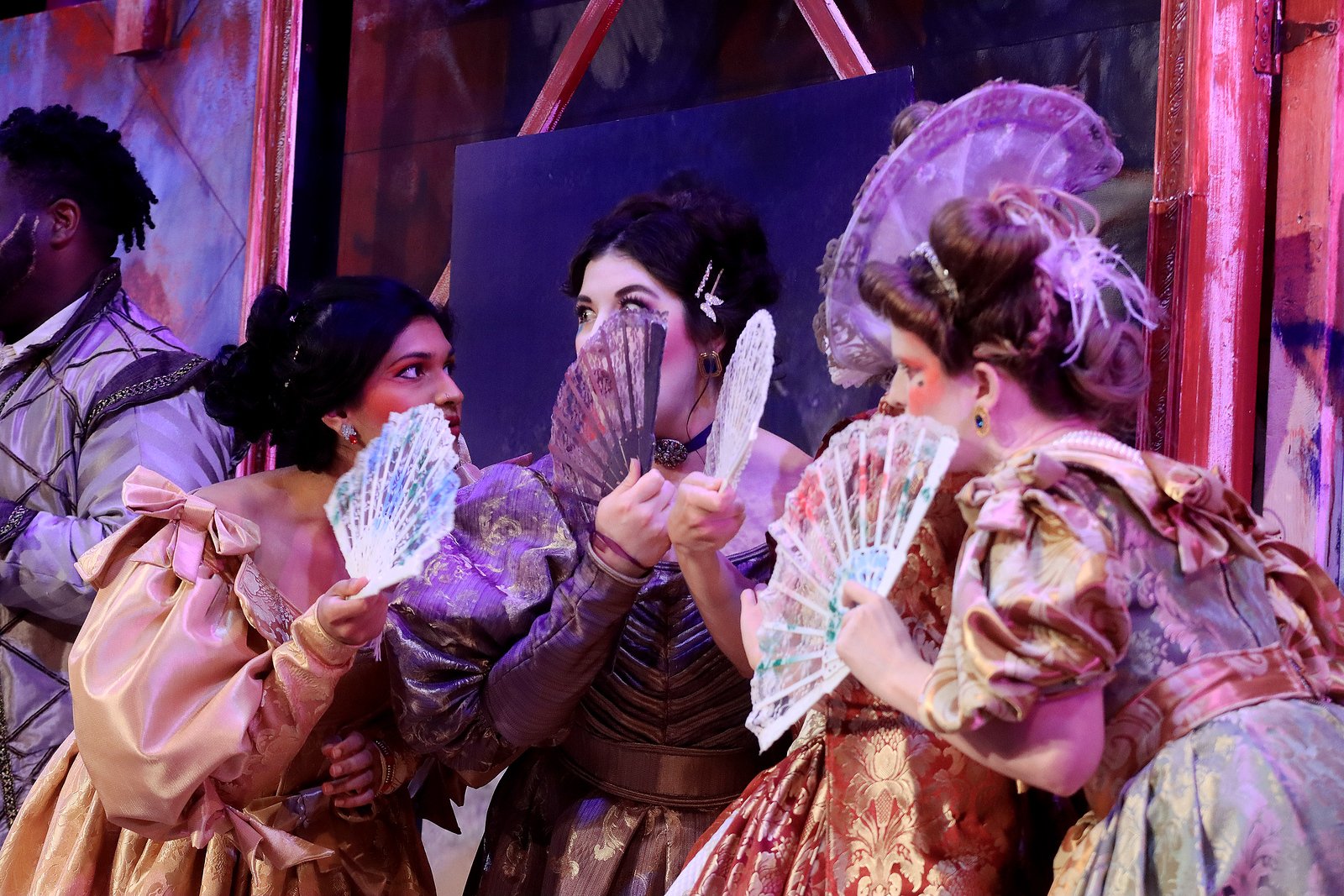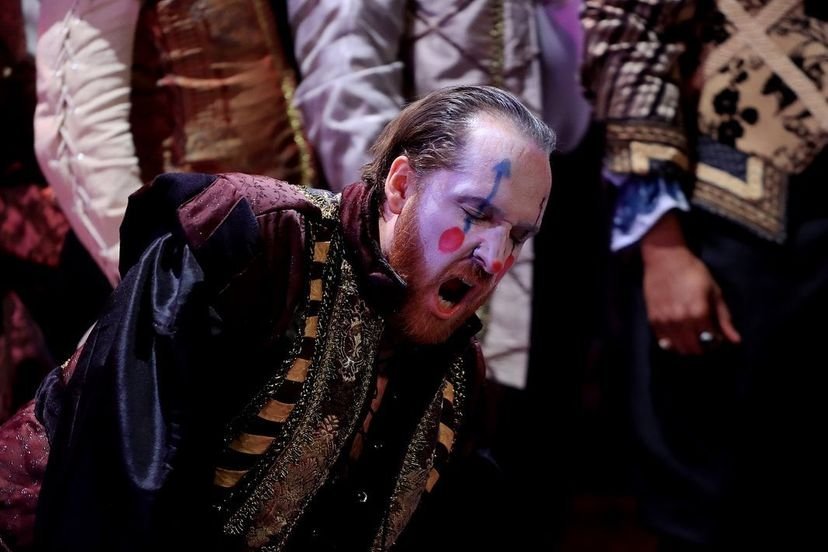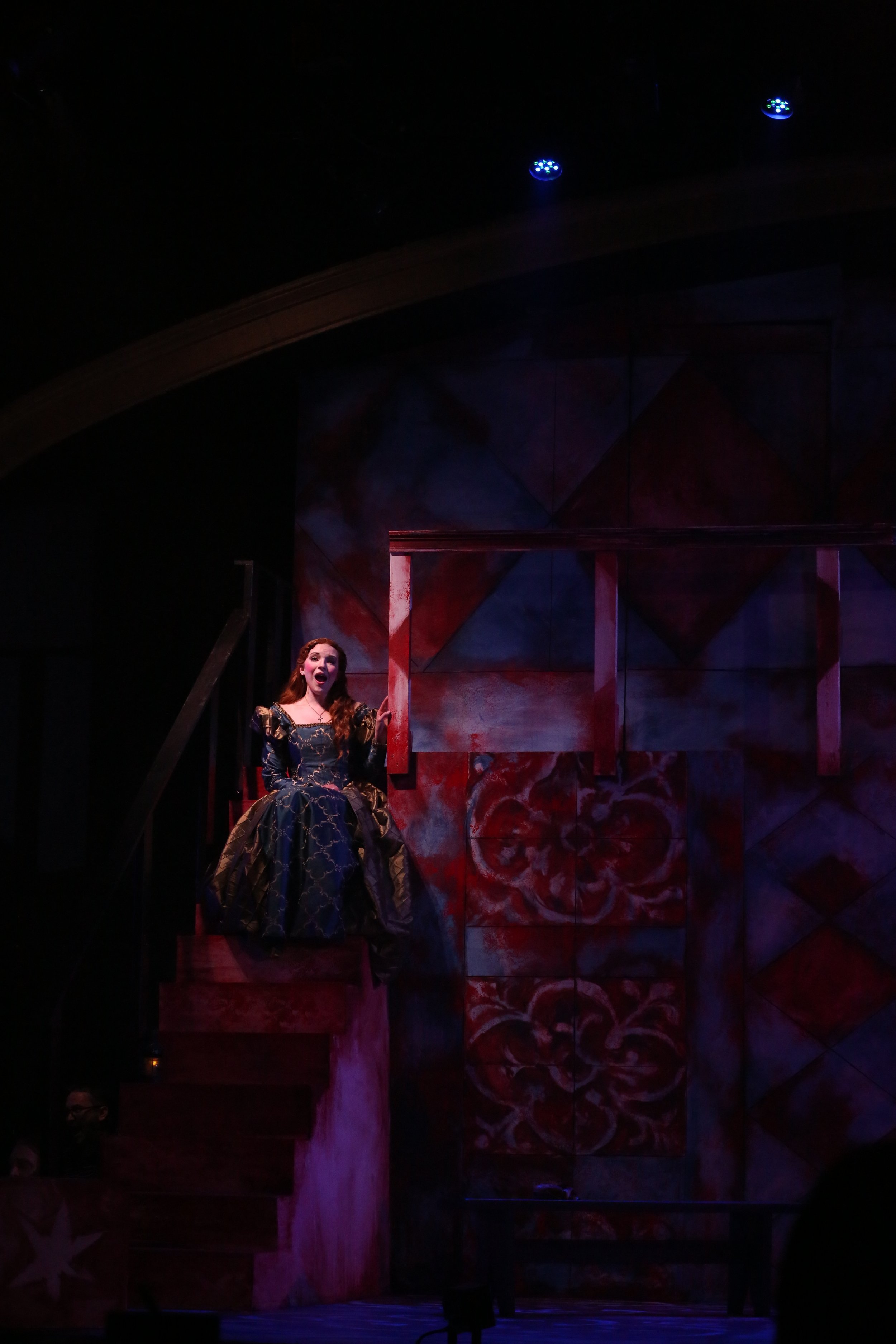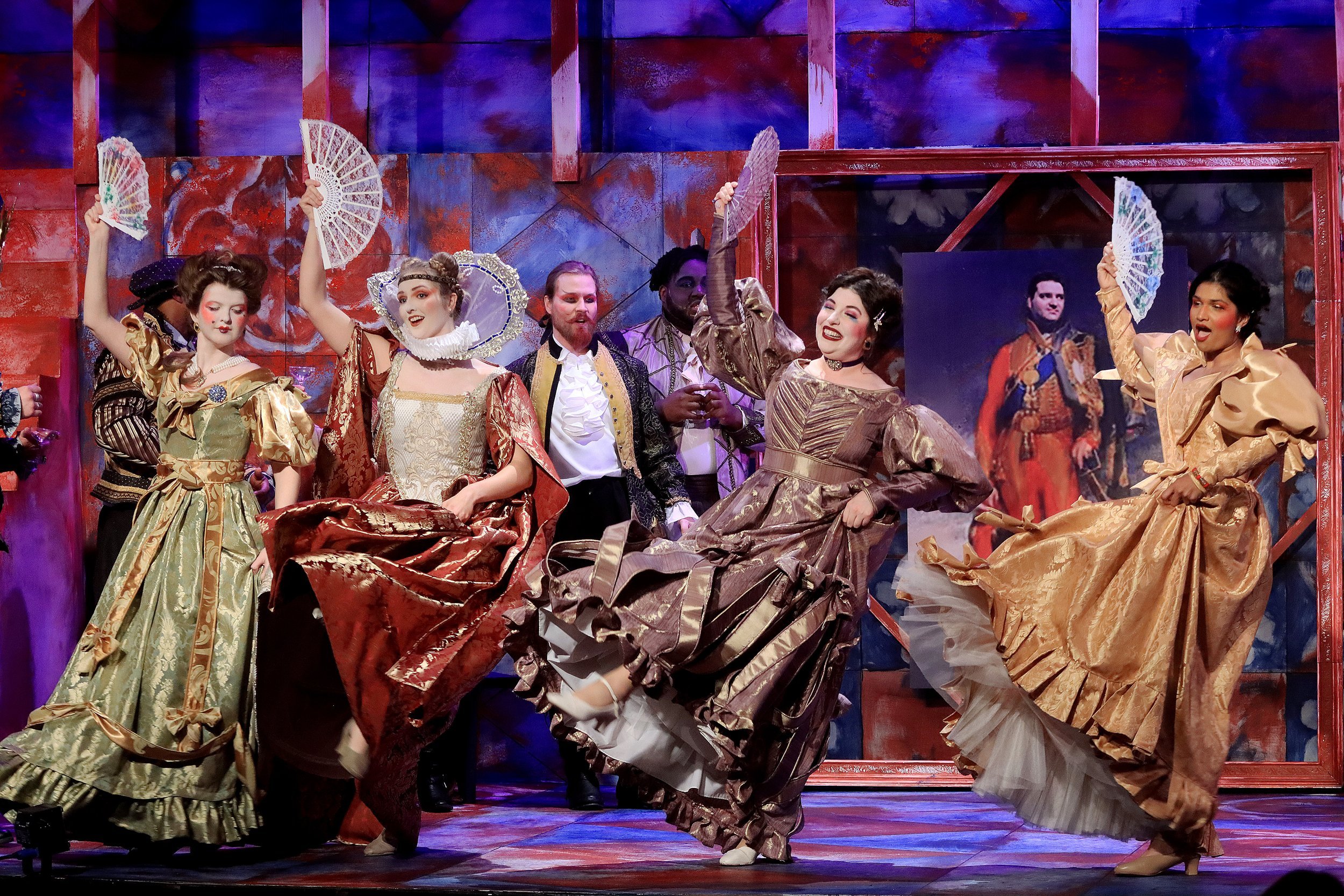RIGOLETTO
Opera in the Heights
2023

Cast
Rigoletto: Nathan Matticks
The Duke: Alex Boyer
Gilda: Catherine Goode
Sparafucile: Aidan Smerud
Maddalena: Aviana Burkepile
Count Monterrone: Blas Canedo-González
Giovanna: Siwei Zhang
Marullo: Kellen Schrimper
Borsa: Calvin Maurecé Harris
Ceprano: Jarrell D. Comeaux
Countess Ceprano: Melissa Krueger
The Page: Meghana Krish
Creative Team
Director: Alyssa Weathersby
Conductor: Eiki Isomura
Set Design: Adam Crinson
Costume Design: Shaun Heath and Mary Webber
Lighting Design: Edgar Guajardo
Hair and Makeup Design: Lisa Longoria
Fight and Intimacy Director: Alyssa Weathersby



Director’s Note:
I believe much of the genius of this show lies in just how easy it is to consume—with beautiful melodies and catchy tunes set in a far-off time and place, the difficult subject matter suddenly doesn’t seem so difficult. Verdi judiciously smoothed out the ragged edges of the very real struggles his characters face, because he recognized that looking directly in the mirror can be uncomfortable (especially during his lifetime of political unrest). To me, that was key to understanding and handling this tragic masterpiece: we, today, are not so different from these characters. And when we are hurt, we often hurt other people.
These flawed characters bulldoze their way through a web of social afflictions like ableism, classism, and verbal and emotional abuse. And yet, this show asks us to hold empathy for them. We must acknowledge Rigoletto’s maltreatment for his deformity and station, while recognizing his abusive words to the courtiers and his isolation and neglect of Gilda. We may consider that the courtiers’ livelihoods depend on their favor with the Duke and that their frustrations with Rigoletto are justified, while seeing that they clearly exacerbate the tenuous dynamic. We might even feel pity for the Duke himself, who likely never had anyone speak to him freely without ulterior motives, and still know that he is the source of poison for everyone else on the stage. The progression of hurt, however, ends with Gilda, who pays for her compassion with her life. If you struggle to relate to her or find her silly, I believe you’ve stumbled across the point and I urge you to remember her young age and lifetime of conditioning.
It’s been a joy to explore these themes with the cast and crew, and I hope you enjoy seeing our revelations on the stage. We agreed with Verdi and chose to embrace an abstracted, historically-adjacent setting, but I’ll reveal three uncomfortable truths of Rigoletto for you to contemplate: hurt mutates with each person it touches, victims can be villains, and we, just like the characters, perpetuate our own cycles of harm.









